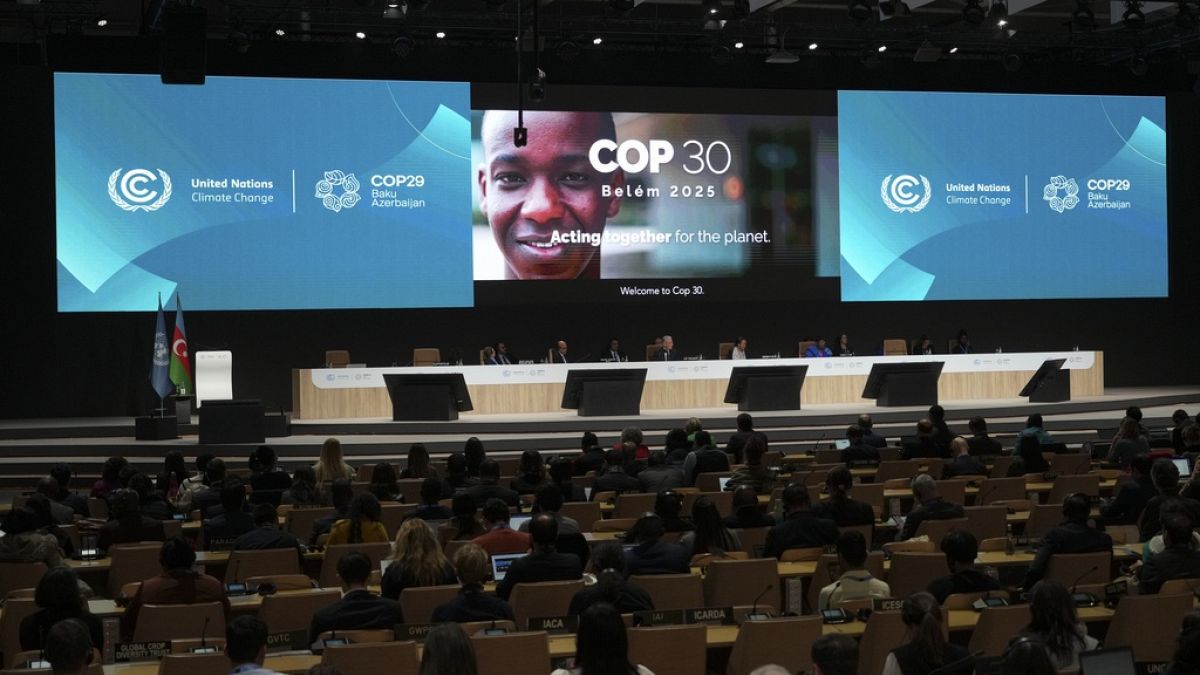Several delegates stressed the significance of having reached an agreement and making progress in “difficult geopolitical times”.
Like many before it, the 29th edition of the United Nations Conference on Climate Change needed extra time for an overall agreement to be reached.
In the early hours of Sunday, exhausted delegates in Baku finally reached a compromise on the most crucial issue of COP29: a new climate financing framework. The UN Climate Change Executive Secretary Simon Stiell called it an “insurance policy for humanity”, adding that “like any insurance policy, it only works if premiums are paid in full and on time. Promises must be kept to protect billions of lives.”
The sum agreed on to be guaranteed by developed nations is $300bn annually by 2035, much lower than what developing nations had been asking for, with many of their delegates made their frustrations known.
Chandni Raina, delegate on India’s negotiating team, said that they requested from the COP29 presidency to speak before the adoption of the agreement, but were ignored.
She called it an “unfortunate incident”, stressing that it follows pattern of a lack of “inclusivity” and “respect” of some countries.
“This has been stage-managed and we are extremely, extremely disappointed with this incident,” she added.
Baku agreement is a ‘floor and not a ceiling’
However, as others pointed out, the compromise was accepted regardless and there is now an hope that this sum will serve as the foundation to reach the goal experts say is needed, which is $1.3trn annually.
Hussein Alfa Nova, Advisor to the African Group Chair, explained:
“It was very important for the African Group to have that number — $300bn by 2035 — as a floor and not a ceiling. And we’ve been able very late in the negotiation to add the term ‘at least’ to ensure that this can only be a starting base, a minimum due to the vast needs of developing countries.”
Voluntary contributions by rich nations not included in the group of developed nations in the 1992 Convention, like China and South Korea, are supposed to help reach that ceiling, as well as multilateral development banks, investments by the private sector and revenue from taxes and the carbon markets.
As did most delegates, the European Commissioner for Climate Action Wopke Hoekstra stressed that an agreement being reached in difficult geopolitical times was particularly significant.
‘Less than what we would have liked, but better than we feared’
Speaking at the final plenary session, he also pointed to an issue close to the EU’s heart where at least some progress also had been made:
“Another topic that was on our minds this week is reducing emissions. It was not the focus of this COP, but we wanted more because the world needs more of it. And even though the UAE consensus was attacked, we did move forward even though it was just a bit.”
He added: “We did manage to safeguard Dubai and take some steps forward. It is less than what we would have liked, but better than we feared.”
Next year’s UN Climate Conference will be hosted by the Brazilian city of Belém where, among other issues, mitigation in general and the Amazon rainforest will take centre stage.
Read the full article here
